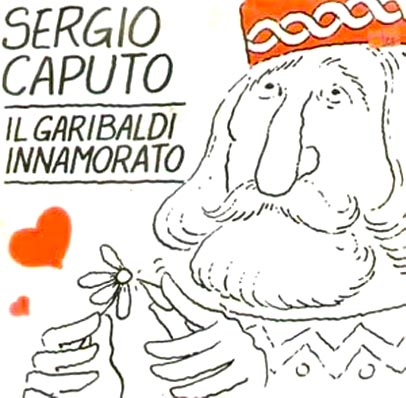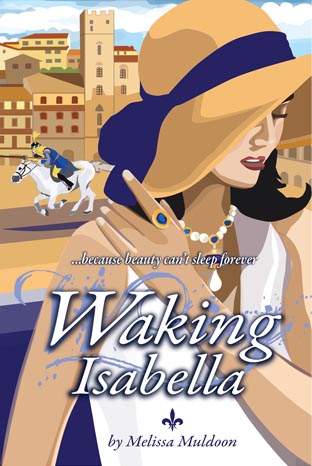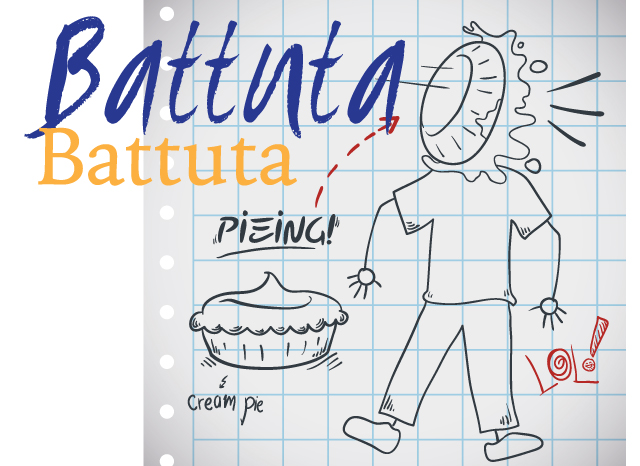
How do Italian joke around in the Italian language?
Reading the novel Dreaming Sophia
you will learn a bit of Italian and words
the Italian use for joking around.
For starters, a battuta is a joke in Italian. The word means “to hit” in the sense of a “punch line of a joke. It can also mean the lines an actor needs to learn by heart for a role in a play. If you are telling a joke or teasing someone in Italian, you would say: “Ti prendo in giro”. It literally means to spin someone around.
Le Scioglilingua is those tricky, slippery tongue twisters or words that sound very similar. The trick is to say them very fast. The word “sciogliere” means to dissolve. When you repeat words that sound very similar they do indeed melt upon your tongue into one fluid sound. In “Dreaming Sophia” Lorenzo and Sophia tease each other trying to say tongue twisters in Italian like: “Trentatré trentini entrarono a Trento, tutti e trentatré trotterellando.” Translation: Thirty-three people from Trentini enter the city of Trento, all thirty-three of them trotting.
A “barzelletta” in Italian could be a joke or short story with a cute twist. Settimo, Sophia’s Italian dad in “Dreaming Sophia,” has quite a wicked sense of humor and loves to play tricks on Sophia as well as entertain her with his stories. Here is a scene I imagine might have taken place one evening around the Pogliani’s dinner table.
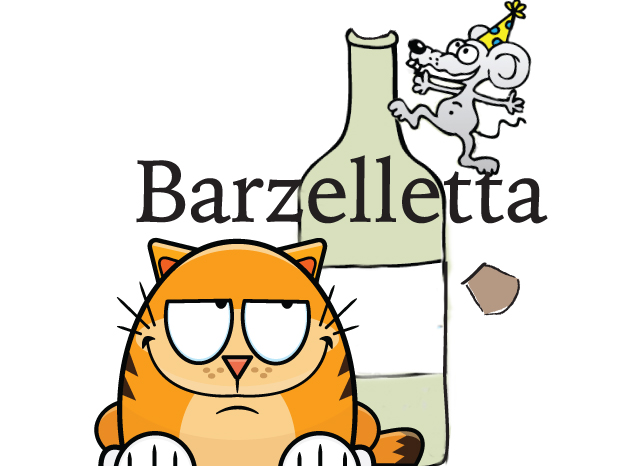
One simply couldn’t avoid Settimo’s pranks and jokes. They were inevitable especially after he had imbibed a few glasses of wine. When he got that particular look in his eye, you knew a story was brewing in his head. He’d say something like, “Sophia, mia cara, have you heard the story about the poor mouse who fell into a bottle of wine?”
Sophia looked over at Adriana and saw her shake her head and smirk. Then she turned her attention back to Settimo and smiled him. “No,” I said, “but I have a feeling you are about to tell me!”
Solemnly, he said, “It is really quite a tragic story! One day a poor little mouse who lived in a cellar decided to uncork a bottle of wine and take a drink. Unfortunately, the tiny thing fell in head first and began to drown. Panicking, he called out to the cat to save him.”
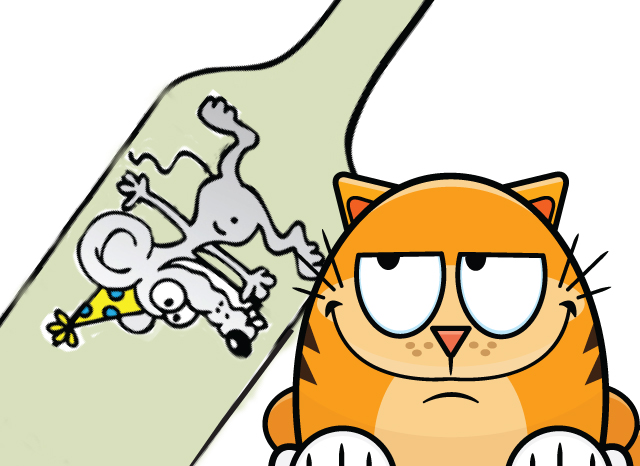
I watched in amusement as Settimo mimicked the mouse, raising his hands in the air and calling out for help in a drunken voice, “Signor Gatto, please Mr. Cat, aiutami! Help me! I’m going to drown! The little mouse was quite desperate you see, so he struck a deal with the cat. He said he’d rather be eaten than drown. He promised the cat if he saved him, the cat could eat him for dinner. The sly cat, thinking this was a lovely reward, wasted no time setting the mouse free. But to his dismay, once the bottle was overturned, the clever mouse quickly scampered tipsily off to his hide in his mouse hole.”

Looking around the table, Settimo paused a moment to take a drink from his glass before continuing. “The cat was quite furious,” he said as he put the glass down, “and ran after the mouse exclaiming, ‘Ehi, aspetta! Hey wait, you said I could eat you now!’ But the little mouse poked his head out of his door, hiccupped and laughed and then said, ‘Signor Gatto, when we are drunk we all promise ridiculous things!’”
Adriana rolled her eyes at her husband then looked back at me and shrugged her shoulders, implying she had heard the story a hundred times. My empty plates suddenly caught her attention, and she exclaimed, “Sophia! You haven’t eaten enough!” “Mangia! Mangia!” she implored. Eat! Eat!
To learn more about Joking around in Italian watch a recent YouTube video I made on the subject in Italian and English. For a translation and transcript of the video be sure to visit the Studentessa Matta website:
To learn more about “Dreaming Sophia” and pick up a copy for yourself please visit Goodreads and Amazon to read reviews and purchase the book in print and e-pub versions. The e-pub version has links to art, film, and music that is talked about in the book.



